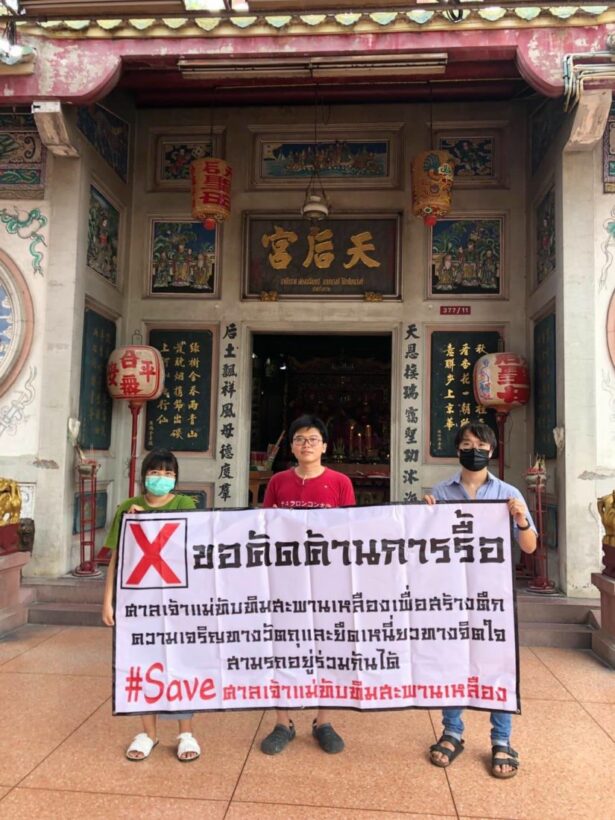Controversy over university’s plan to demolish Chinese shrine

A Bangkok university plans to demolish a historic Chinese shrine on the property to build student dormitories. The shrine’s caretakers have until next week before they are evicted to make way for Chulalongkorn University’s new buildings. But the caretakers and student activists say “no.”
Apparently the university has been pressing keepers of the Thapthim Goddess Shrine to move for about 2 years, a staff member told Khaosod English. The shrine’s caretaker, who lives in a housing unit on the shrine’s property, refuses to leave.
“I won’t allow them. No way.”
Students are also adding their voice. Some were holding signs in front of the shrine. An online petition was started and now has nearly 1,000 supporters.
The Thapthim Goddess Shrine houses a statue known as Ama. The shrine’s keeper says her great grandparents brought the Ama statue to shore after it was “floating against the currents” in a river for 3 days. She says the statue is sacred after withstanding the river’s currents and the temple was built by her family to allow the public to pray to Ama.
“People who come to the shrine asked Ama for wishes to be granted such as love, relationship and fertility … People also pray to Ama for protection. This is faith.”
One Thai-Chinese worshipper at the temple said destroying a sacred place to build housing units doesn’t seem right.
“Call me old fashioned if you will but are they not afraid? This land belongs to the deity. It may not be a mausoleum but how can you occupy a sacred place? It’s inappropriate.”
SOURCES: Khaosod| Bangkok Post
https://www.facebook.com/Netiwitntw/posts/3226103730784396
Latest Thailand News
Follow The Thaiger on Google News:


























